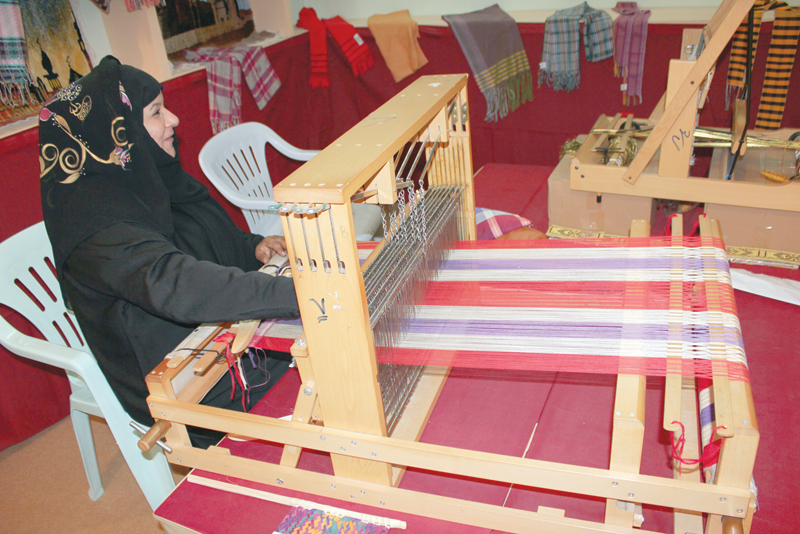

TV SARNGA DHARAN NAMBI -
A combination of business school brain and social worker’s heart, as Thomas L Friedman calls it, can’t be anything but terrific. It weaves a narrative unlike any other. Social enterprise is the new buzzword — in the Sultanate and the world over.
Offering an alternative approach to social intervention by turning the focus away from traditional charity-oriented support for the less privileged to empowerment of the disadvantaged — with the aim of transforming them into change agents in their own communities, social entrepreneurs are harbingers of a new dawn for humanity.
Times are changing; and profit-hungry businesses are increasingly turning themselves into social businesses that listen to the concerns and aspirations of local communities and blend seamlessly with the social matrix. They talk passionately about inclusive growth and business’s social impacts. They are widely admired, for they offer innovative solutions to a raft of long-standing social issues.
Studies such as the Deloitte Global Human Capital Trends report highlight the appreciable growth in the number of social enterprises globally over the last few years. What drives their growth is the increased recognition of the significance of social capital in defining overall organisational purpose, stakeholder engagement and bottom line.
Figures are quite impressive: the UK has nearly 70,000 social businesses, employing nearly a million people and contributing over £24 billion to the economy. Australia has almost 20,000. The Middle East is also witnessing the emergence of powerful social enterprises.
The recent partnership between C3 (Consult and Coach for a Cause) and HSBC to launch a Social Impact Accelerator Programme in the Arab region towards helping entrepreneurs achieve financial sustainability through addressing social challenges reveals the region’s enthusiasm to exploit the high potential of social enterprises to bring about meaningful change at the community level.
The programme offered by C3 — a UAE-based social enterprise with a mission to help entrepreneurs in the Middle East realise their potential and maximise business’s positive impact on the community — in association with HSBC will invite 100 applicants from UAE, Oman, Kuwait and Egypt, out of which 20 will be shortlisted to participate in a week-long event next year led by impact investors and other key stakeholders from the social enterprise world. Contribution to at least one of the UN Sustainable Development Goals is a key selection criterion.
The selected entrepreneurs will get to attend customised lectures and interactive workshops focusing on the theory of change, social impact measurement, legal structure and governance. They will also receive one-on-one support from business leaders and social impact experts. Other highlights are the pitch session and board simulation.
In the Sultanate too, social enterprise segment is getting renewed attention. And we do have a few successful projects such as the Sidab Women’s Sewing Group. Though no study has been done on the efficacy of social enterprises operating in Oman, one thing is obvious: the Sultanate needs to carefully nurture a young generation of social entrepreneurs and establish a sustainable ecosystem of social entrepreneurship to ensure inclusive growth and effect social transformation.
A key promoter of social entrepreneurship in Oman has been Knowledge Oman, an organisation striving to empower local communities by facilitating, creating and leading knowledge transfer projects.
As a strategic platform for social innovation and knowledge-sharing, Knowledge Oman launched a national initiative to nurture a young breed of social entrepreneurs in the country, which turned out to be quite successful in creating a few powerful enterprises and also enhanced public awareness about the potential of social enterprises in aiding nation building.
Again, it was executed in partnership with C3, and offered expert coaching and mentoring support on creating social impact and finding social solutions through entrepreneurship. Participants benefited from a support network of over 500 corporate volunteers, coaches and consultants who offered year-long mentoring based the specific needs and environment of individual entrepreneurs.
Obviously, social entrepreneurs are being hailed as the new heroes, as they look at businesses as a means to solving various social problems such as poverty, lack of healthcare and basic education in rural areas, youth unemployment and marginalisation of rural women, to name a few.
And the sector is poised for exciting times, as technology and creativity are assuming an increasingly assertive role in driving it forward. That’s because, technology is an ideal tool to address social problems owing to its innovative and affordability aspects, while creativity-driven social enterprises offer amazing opportunities for skill development and employment at the local community level.
Oman Observer is now on the WhatsApp channel. Click here



